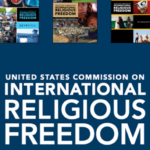Stalled
Genesis 11:1–9
The long genealogical record of Noah’s family highlights the division and spread of humanity according to languages, lands and nations, though not necessarily in chronological order.
Genesis 11 describes different human languages developing from human pride.
Notice the repetitive word “languages” in Genesis 10, verses 1, 5, 20 and 31.
United (1–4)
According to Genesis 11:1, the entire population of the earth had the same language and vocabulary, which resulted in excessive pride, presumption and arrogance among humans, what we refer to as hubris.
Some people commanded others to build a city in order to make a name or reputation for themselves rather than focusing on the person, character and will of God.
Thus, a radical difference existed between human opinion of themselves and God’s evaluation of human actions.
Reviewed (5–7)
In modern cultures, local governments often issue building permits, and authority figures examine the quality of the workmanship.
God inspected the entire city rather than a singular building project. The human plans for a city ignored and disobeyed God’s command to fill the earth in Genesis 9:7.
One step in disobedience can multiply into other acts of disobedience.
It may be likely that Genesis 10–11 were not written in chronological order.
First, Moses described the spreading of humans after the flood (Gen. 10:32), then God’s Word described multiplication of languages and the scattering of humans throughout the earth.
A second emphasis in Genesis 11:5–7 is the rapid development of technology, that is, the making of bricks and mortar.
God took note of the hubris of humans.
Not only did humans plan to build a city, humans wanted to build a tower reaching to the sky.
Rather than honoring God, the builders wanted to honor themselves by making a name for themselves or becoming famous.
In response to humans attempting to build a tower to the heavens, God came down in judgment.
As Bible scholar Allen Ross wrote, “The basic characteristics of culture are thus seen here: underlying anxiety (the fear of being separated and disconnected) and the desire for fame (a sense of security in a powerful reputation).” [Allen Ross, Creation and Blessing: A Guide to the Study and Exposition of Genesis. Grand Rapids, MI: Baker Books, 1996), 245.]
Dispersed (8–9)
In response to human hubris, God confused human speech. He scattered people throughout the earth.
God fulfilled His original purpose for humans — that is for humans — to fill the earth (Gen. 1:28).
God was the one who fulfilled His own purpose by removing Adam and Eve from the garden as well as dispersing people throughout the earth resulting in the stoppage of the attempt to build a city.
In my opinion, Babylon must be the oldest on the earth according to Genesis.
The Bible uses a play on words for the city. In Hebrew, the name of the city is “Babel.”
By Mark Rathel
Professor at the Baptist College of Florida in Graceville, Florida








